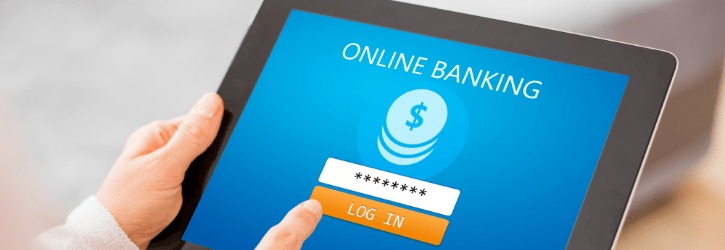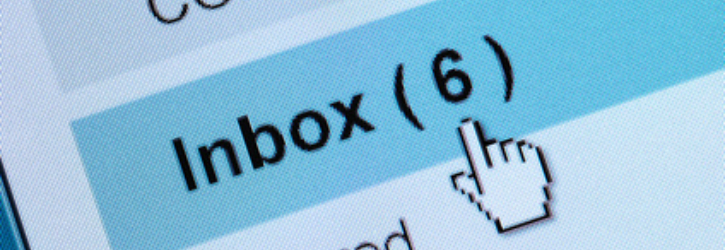
Welcome To The Data Leak Lawyers Blog
We focus on the latest news surrounding data breaches, leaks and hacks plus daily internet security articles.

We focus on the latest news surrounding data breaches, leaks and hacks plus daily internet security articles.

There can be huge risks when it comes to online streaming data breach incidents, with research showing that they’re one of the biggest targets for cybercriminals.
And it makes sense as to why they’re a huge target as well. Not only could they gain financial information from your account, but they could also use your account for pirating as well.
Online streaming is growing and growing in popularity, so there’s no way that it will be left behind when it comes to targets for cybercriminals and hackers. It can be so easy for accounts to be breached, so you need to make sure to do all you can to protect yourself. And know your rights when it’s not your fault!

You may be entitled to make a claim for compensation if you are the victim of a human error data breach incident.
In fact, some of the biggest group action and individual cases we’re fighting for justice in were caused by simple human errors. Many of the human errors committed are preventable, and it’s this key factor that means you can be entitled to make a claim.
Don’t assume that you can’t claim because a person is responsible (or partially responsible) for a data breach. The organisations who employee people can be vicariously liable for the actions of their employee. This means that the blame can be squarely with the employer!

Data suggests that there’s been a rise of funds transfer fraud (FTF) in the UK, and with real-time and faster payment processes commonplace these days, we’re not surprised.
Incidents of funds transfer fraud can be linked with data breaches as well. Whether it’s a bank or financial institution that’s hacked – the Tesco data breach being one example – or a scam that’s linked to a data breach, we have to ask the question: what more could have been done, and who’s responsible?
It can only take a little bit of information in the wrong hands to do some serious damage. People have fallen victim to scams that are directly related to big data breach incidents. A rise in FTF is a concern.

We may be able to offer you a No Win, No Fee arrangement for a banking data breach compensation claim.
The risks of falling victim to a banking data breach are obvious. With so much ease of access to our finances, it can be simple for hackers and criminals to exploit the ease of access to steal money directly from accounts.
Although you have a duty to ensure that you’re vigilant to avoid giving information to hackers, there are ways criminal can get hold of information and use it against you. If your information has been leaked, breached or hacked, you may be eligible to make a claim for data breach compensation if a bank is responsible.

It can be a huge problem if universities are hacked. Reports suggest that more needs to be done when it comes to educational cyber defence, as recent reports have confirmed that white hat hackers managed to easily break into systems.
According to media reports, white hat hackers managed to gain access to “high value” data from universities in hours. In case you’re not sure, “white hat hackers” are essentially hackers who break into systems for non-malicious proposes. They often inform the organisations they have hacked so they can improve their security. They’re often security specialists themselves.
We’ve seen the damage that university data breaches can cause. We continue to run an action for victims of the University of Greenwich Data Leak. In that case, a wealth of personal and sensitive data was exposed.

Victims of last year’s TV licensing data breach need to take care to avoid falling victim to phishing scams that are doing the rounds at the moment.
Victims of the TalkTalk data breach – one of the over 20 data breach actions we’re representing people in – were contacted after the breach. It appears that scammers had got hold of information that had been exposed in the breach. Victims of the TV licensing data breach should be wary of being contacted in the same way.
We know that phishing scams using the cover of TV licensing are doing the rounds. One victim lost £10,000.00 to scammers after they managed to convince him they were the real thing.

Without even knowing it, your emails may be being read by companies, and you may feel that this is a Gmail data breach.
The recent admission by Google that they’ve been allowing companies to scan emails is a worrying one. App developers are reportedly able to access data in Gmail mailboxes to use it for marketing purposes. Even employees were manually reading mailboxes in order to train AI software to then do it for them.
If this applies to you, whether this can be classed as a Gmail data breach or not is apparently open for debate.

An Amazon data breach incident took place in the lead up to the big Black Friday sales a few weeks ago.
The incident reportedly stemmed from a technical problem.
In the data protection breach, customer names and email addresses were inadvertently posted on the company’s website. They were removed upon discovery of the error, and customers affected by the data breach have been informed.
The Information Commissioner’s Office (ICO) is said to be looking into the situation.

It’s understood there have been cases of Equifax data breach fraud committed, perhaps, as a direct result of the breach itself.
Tech company, Forte, produced some stats that indicate some alarming figures in the wake of the Equifax data breach. The data can be interpreted as a possible spike in some fraud incidents after the Equifax data breach took place, which wouldn’t surprise us given the scale and nature of this monumental attack.
It’s another sign that we ought to be far more concerned with regards to data breaches than many people are.

Ransomware attacks are still on the rise, and we all have every reason to be very worried about the increasing trends we’re seeing.
According to at least one piece of recent research, 2018 has already seen double the rate of ransomware attacks so far, but what’s equally as concerning is that the attacks are changing tact to go for bigger targets to demand higher ransoms, and the hackers are enjoying success.
It’s a sign of the times, and we all need to be very careful to make sure we protect ourselves from the growing risks of ransomware attacks.
EasyJet admits data of nine million hacked
British Airways data breach: How to claim up to £6,000 compensation
Are you owed £5,000 for the Virgin Media data breach?
Virgin Media faces £4.5 BILLION in compensation payouts
BA customers given final deadline to claim compensation for data breach
Shoppers slam Morrisons after loyalty points stolen
Half a million customers can sue BA over huge data breach
Lawyers accuse BA of 'swerving responsibility' for data breach
The biggest data breaches of 2020
Fill out our quick call back form below and we'll contact you when you're ready to talk to us.